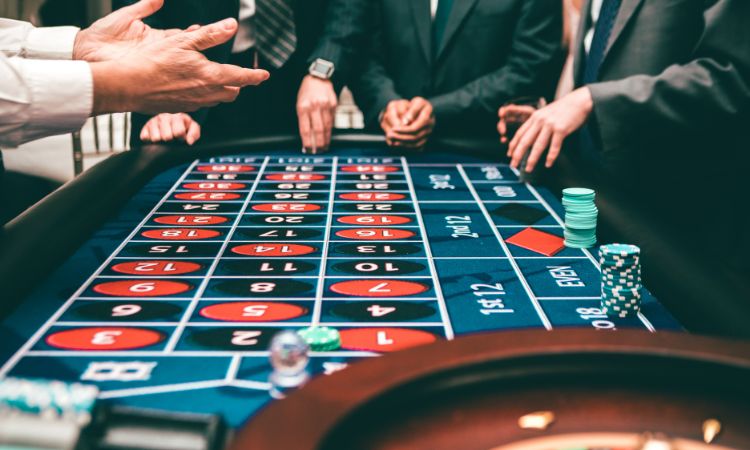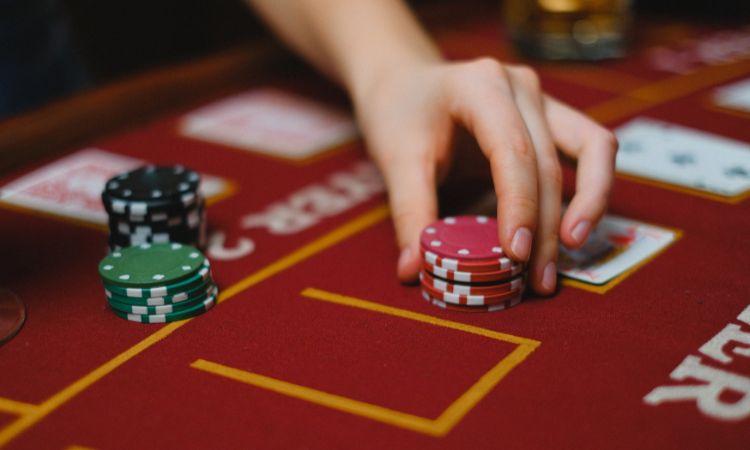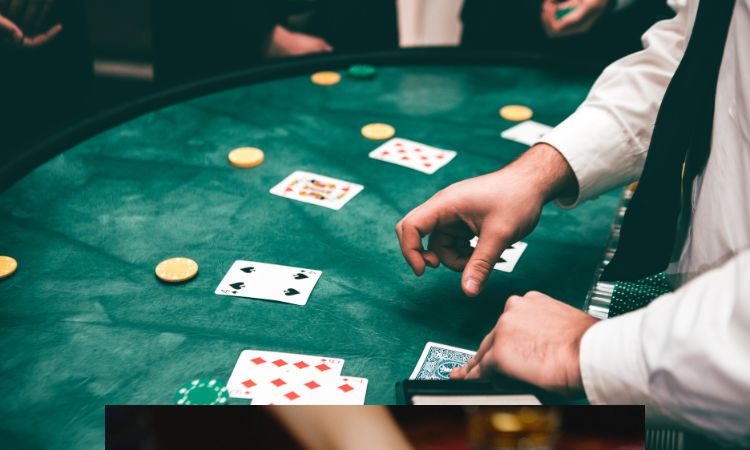Many people enter casinos for entertainment purposes only to lose control, leading to serious financial and mental consequences. Why is that? Casino games are not simply based on luck, but are also cleverly designed to exploit players’ psychological weaknesses. The following article by In 999 will analyze the psychological factors applied in casino games, explaining why many people become addicted and find it difficult to stop once they start.
1. How do casinos influence players’ psychology?
1.1. Core goal: create a feeling of “near-win”
One of the most effective psychological tactics in casino games is to design a feeling of near-win:
Slot machines often give “near-win” results, making players think they are about to win.
In card games, the system can create close games to stimulate players to continue.
The “near-win” psychology makes players feel like they have a chance, making it difficult to stop.
1.2. Interface, sound and lighting are optimized for addiction
Visual and audio effects in casino games are programmed to:
Activate dopamine – a neurotransmitter related to pleasure and reward
Stimulate and make players feel excited every time they win
All are aimed at the goal: to keep players engaged for as long as possible.

2. Common psychological effects in casino games
2.1. The “small win streak” effect
Although the overall player may be losing, the system will alternate small rewards:
Keep the player in a state of “just enough win”
Create the illusion that they are making progress
This strategy maintains continuous excitement, making the player not realize that he is losing.
2.2. The “recovery” psychology
When losing, people tend to:
Bet more to get back what they have lost
Losing the ability to analyze and make decisions based on emotions
This is one of the most powerful psychological effects, causing many people to sink deeper into betting.
2.3. The “confirmation bias” effect
Players tend to remember wins and forget losses:
More confident that they “have the ability” or “have a trick”
Ignore real data and probability rules
This effect reinforces false beliefs, causing players to continue investing time and money.

3. Design elements that make players lose the concept of time and money
3.1. “Timeless” casino space
In real casinos:
No clocks, windows or signs reminding the time
The space is designed to be closed, with continuous artificial light
This makes players unaware of how long they have been playing, easily leading to losing control of time.
3.2. Use credit instead of cash
When playing casino online or in a traditional casino:
Players often use chips, tokens or account balances instead of cash
This reduces the feeling of “losing real money”
As a result, players are more likely to spend more, less considering the consequences.
4. Random reward mechanism and brain chemistry
4.1. Irregular and random rewards create a sense of excitement
Casino games use rewards in random cycles:
Players do not know when they will win
Create a “variable reward loop” – the most addictive factor in behavioral psychology
4.2. Dopamine and repetitive behavior
Every time you win, even a small amount, the brain releases dopamine:
Leading to a feeling of joy and excitement
Making players want to “repeat that feeling”
Gradually, the brain forms a habit of gambling addiction, similar to addiction to stimulants.

5. Flow and Loss of Control
5.1. What is Flow?
Flow is a state in which a player:
Intensely focused
Gets caught up in the game without awareness of time or surroundings
This state makes it difficult for players to stop, especially in games like slot games or fast-paced blackjack.
5.2. Flow Resonates with Other Psychological Effects
When flow is combined with the psychology of recouping, the illusion of control, and the near-win effect, players fall into a cycle of losing control, prolonging their playing time and increasing their risk of losing.
6. How to Control Gambling Behavior?
6.1. Set limits before playing
Limit your daily playing time
Limit the amount of money you are willing to lose (and do not exceed it)
This is a basic but very effective step in controlling gambling behavior.
6.2. Recognize signs of losing control
You should stop playing when you see the following signs:
Feeling forced to play to “recover”
No longer having fun but just playing out of habit
Spending more time than expected on betting
6.3. Play for entertainment purposes, not to make money
Consider betting as a form of entertainment with costs, like buying movie tickets or eating out. Absolutely do not expect to get rich from the casino.
Psychology plays a core role in the design and operation of casino games. From the interface, sound to reward structure, all aim to stimulate the brain and maintain continuous playing behavior. Players can easily fall into a state of losing control without realizing it, leading to serious financial and mental consequences.
Understanding the psychological effects in casinos not only helps you become a smart player, but is also the first step to protecting yourself from the pitfalls of unhealthy betting behavior. Always stay alert, have a clear plan and know when to stop to ensure that betting is only a small part of your entertainment life.
See more:
